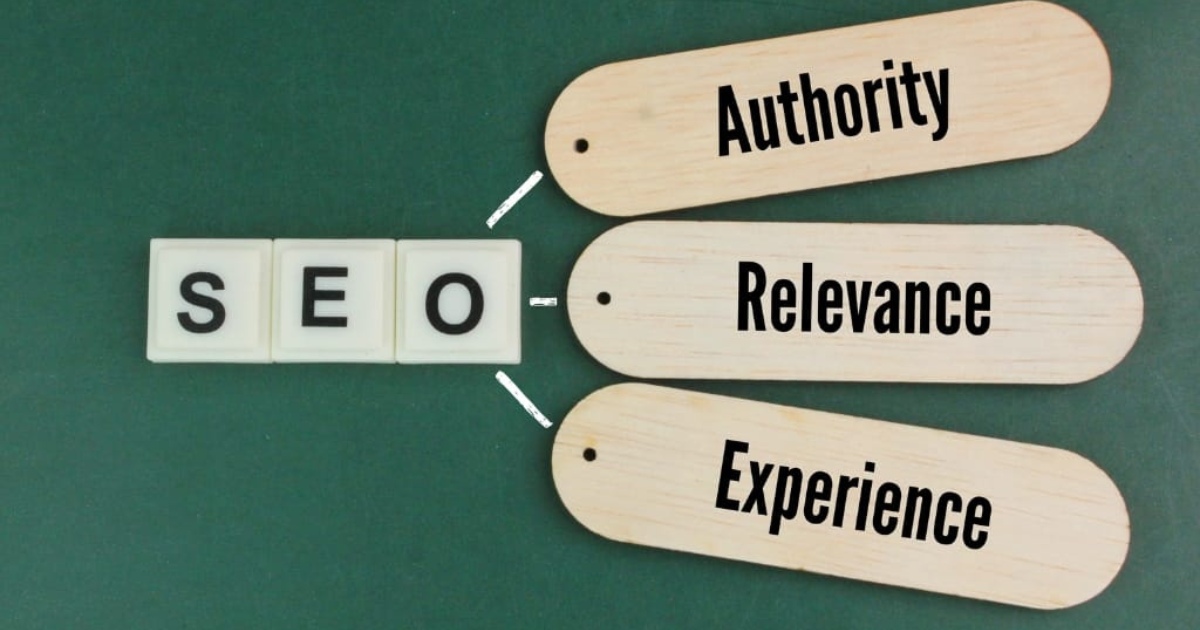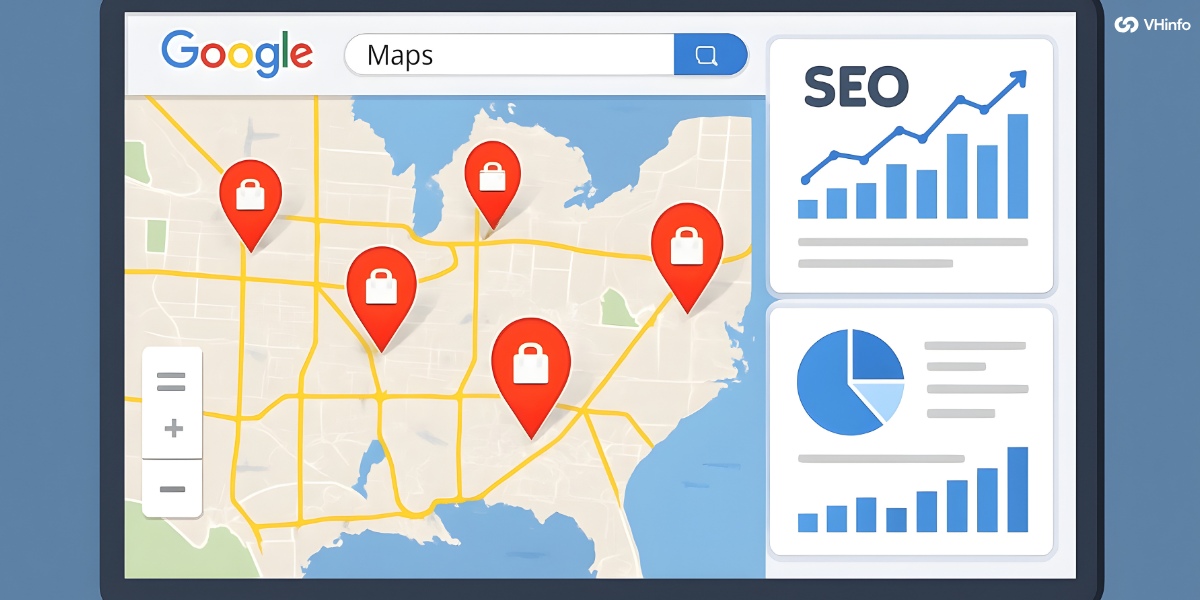Getting your website to the first page of Google search is a key goal for any online presence.
A big part of making that happen is something called SEO relevance. This guide will explain what it is and why it’s so important for your SEO strategy. We will look at how to make your website content more relevant to what people are looking for.
Think of a search engine like a helpful guide. When someone types a search query into Google, the guide’s job is to find the best possible answer. If your web page is the most helpful and directly answers the question, the search engine will show it to more people.
This is the core of content relevance. Improving it helps you get more organic traffic and connect with your target audience.
At VH-info, we focus on providing clear advice to help you improve your online visibility and achieve SEO success.
What is SEO Relevance and Why Does It Matter?

SEO relevance is a cornerstone of any effective digital marketing plan. It is about how well your content matches a user’s search query. When your content is highly relevant, search engines see it as a valuable resource, which can lead to better search engine ranking positions.
Defining SEO Relevance in the Context of Search Engines
In simple terms, SEO relevance is how closely your content answers the question a person asks a search engine.
If someone searches for “how to fix a leaky faucet” and your page gives step-by-step instructions with pictures, it’s highly relevant. If your page only talks about different types of faucets, it’s less relevant.
A search engine looks at the words you use, the topics you cover, and how your page is structured to decide if it’s a good match for a given search query. This process is central to how search engine optimization works.
The Connection Between Relevance, Authority, and Trust
Relevance, authority, and trust are closely linked. When you consistently create quality content that is relevant to your audience, you start to build authority. Authority means that search engines and users see you as an expert on that topic.
This builds trust, which encourages more people to visit your site and share your content. A strong backlink profile, built through effective link building, also signals to search engines that other websites trust your content, boosting your topical authority.
How Search Engines Like Google Determine Relevance?
Search engine algorithms use many signals to figure out relevance. They look at the relevant keywords on your page and compare them to the search terms used. They also use natural language processing to understand the meaning and context of your content.
This helps them understand the user intent behind a search. For example, is the user looking to buy something, learn something, or find a specific website? The search algorithms analyze all these factors to deliver the most useful search results.
The Impact of SEO Relevance On Your Click-Through Rate (CTR)
Your click-through rate is the percentage of people who click on your link after seeing it in the search engine results. When your title and description are highly relevant to the search query, more people will click on them.
A higher CTR tells Google search that your page is a good match for that query, which can help improve your search rankings. Creating compelling meta tags that align with user intent is a key part of improving your CTR and driving organic traffic.
Key Factors That Influence Your On-Page SEO Relevance

On-page SEO involves optimizing the elements on your web page. This is a direct way to show search engines what your content is about and improve its content relevance.
The Role of Keyword Placement and Density
Using your main keyword and related relevant keywords is important, but how you use them matters. Your main keyword should appear in important places, like your title, headings, and the first paragraph.
Keyword research is the first step in finding the right terms to target. However, avoid stuffing your content with too many keywords, as this can hurt your SEO performance. The goal is to use them naturally within your great content.
Optimizing Title Tags, Headers, and Meta Descriptions
Title tags, headers (like H1s and H2s), and meta descriptions are critical for SEO relevance.
Your title tag is the first thing people see in search results, so it needs to be clear and contain your main keyword. Headers help structure your content and tell search engines about the main sections of your page. Your meta description is a summary that can persuade users to click.
Optimizing these meta tags helps both users and search engines understand your page’s topic.
Creating High-Quality, In-Depth, and Relevant Content
Quality content is the foundation of SEO. Your website content should be well-written, informative, and cover a topic in detail.
Instead of writing short blog posts that only scratch the surface, create comprehensive guides that answer all the potential questions a user might have. This approach helps establish topical authority and signals to search engines that your page is a valuable resource.
Good content creation is about providing real value to your target audience.
The Importance of Internal Linking For Contextual Relevance
Internal linking means adding links from one page on your website to another. This helps search engines understand the structure of your site and see how your content is related.
When you link between pages covering similar relevant topics, you create topic clusters that strengthen your site’s overall authority on that subject. These internal links also help users find more relevant content on your site, improving their user experience.
Using LSI Keywords to Enhance Topic Signals
LSI (Latent Semantic Indexing) keywords are words and phrases that are semantically related to your main keyword.
For example, if your main keyword is “cars,” LSI keywords might include “engine,” “tires,” and “driving.” Including these terms in your content helps search engines get a better understanding of your topic.
It shows that you are covering the subject in-depth, which improves your content relevance and supports your SEO efforts.
Improving Off-Page SEO Relevance For Better Authority

Off-page SEO refers to actions taken outside of your own website to impact your rankings within search engine results pages. This often involves building your site’s authority and reputation.
Building A High-Quality Backlink Profile
Backlinks, or inbound links, are links from other websites to yours. They act like votes of confidence.
When a reputable website links to your page, it tells search engines that your content is valuable and trustworthy. The goal is to get external links from high-authority sites in your industry. This is a core part of any successful link building strategy.
The Significance of Anchor Text in Backlinks
Anchor text is the clickable text in a hyperlink. When another site links to you, the anchor text they use gives search engines context about what your page is about. If the anchor text is relevant to your page’s topic, it can boost your SEO relevance.
For example, if you have an article about content marketing, an ideal anchor text would be “content marketing strategies.”
Social Signals and Their Contribution to Relevance
Social signals refer to the shares, likes, and comments your content receives on social media platforms.
While not a direct ranking factor, a lot of social media activity can lead to more people seeing and linking to your content. This can indirectly boost your SEO performance by increasing brand awareness and driving traffic to your site.
A good social media marketing plan can support your overall SEO strategy.
Brand Mentions and Citations As Relevance Factors
Even when another website mentions your brand name without linking to you, it can still act as a relevance signal.
These unlinked brand mentions and citations help build your online presence and show search engines that your brand is being talked about. This is especially important for local SEO, where mentions in online directories can improve your visibility in local search results.
How Technical SEO Boosts Your Overall SEO Relevance?

Technical SEO deals with the backend of your website to make sure it’s easy for search engines to crawl and index. A technically sound website provides a better user experience, which is a key ranking factor.
Website Structure and Its Impact on Crawlability
A logical website structure makes it easy for search engines to find and understand all your content.
A clear hierarchy with organized categories helps crawlers navigate your site efficiently. This ensures that all your important pages are indexed and can appear in search results. Good structure also helps distribute link authority throughout your site via internal linking.
The Role of Site Speed and User Experience
How fast your page loads is a critical factor for both users and search engines. A slow website leads to a poor user experience and a high bounce rate, which is when users leave your site quickly. Search engines prefer to rank pages that load quickly because it keeps users happy.
Improving site speed is a fundamental part of technical SEO and can have a big impact on your conversion rates.
Mobile-Friendliness As A Core Relevance Signal
More people use mobile devices to access the internet than desktops.
Because of this, Google uses mobile-friendliness as a major ranking factor. Your website must be easy to use on a small screen. If it’s not, your search rankings will suffer. A responsive design that adapts to any screen size is one of the best practices for modern SEO.
Schema Markup For Enhanced Search Engine Understanding
Schema markup is a type of code you can add to your website to help search engines understand your content better. It can tell them if a piece of content is a recipe, an event, or a product review. This can lead to rich snippets in the search results, which are more eye-catching and can increase your CTR. Using schema helps communicate your content’s relevance more clearly to search engine algorithms.
Tools and Metrics For Measuring SEO Relevance

To improve your SEO relevance, you need to track your performance. There are several SEO tools and metrics you can use to measure how well you’re doing.
Using Google Search Console to Track Performance
Google Search Console is a free tool that gives you insights into how your site performs in Google search. You can see which search terms people are using to find your site, track your click-through rates, and identify any technical issues that might be hurting your online visibility.
It’s an essential tool for any SEO strategy.
Analyzing User Engagement Metrics in Google Analytics
Google Analytics is another free tool that helps you understand user behavior on your website.
You can track metrics like bounce rate, how long people stay on your pages, and which pages they visit most. High engagement signals to search engines that users find your content valuable and relevant. Analyzing these metrics helps you identify areas for content optimization.
Competitor Analysis to Benchmark Your Relevance
Look at the competitors who are ranking on the first page for your target keywords.
Analyze their website content to see what they’re doing well. What relevant topics are they covering? What is their backlink profile like? This analysis can give you ideas for how to improve your own content strategy and outperform them in the search rankings.
Tracking Keyword Rankings and SERP Visibility
Watching where you stand for your top keywords helps you know if your SEO work is working well.
If your place in search results goes up, it means search tools think your page is better and fits what people want. There are many easy tools for SEO that help you check your rank as time passes. VH-info gives ways to watch and boost your spot in search results with good success.
FAQ’s:
Why is Content Relevance Important For Local SEO?
For local SEO, content relevance helps you connect with potential customers in your area.
When your content includes location-specific keywords and information, it signals to search engines that your business is a good match for local searches. This is key for appearing in map packs and attracting foot traffic.
Can You Have Too Much Relevance (Keyword Stuffing)?
Yes. Keyword stuffing is the practice of overloading a page with keywords in an attempt to manipulate rankings.
Search engines are smart enough to recognize this, and it can lead to a penalty. It’s better to use keywords naturally and focus on creating great content that provides a positive user experience.
Can A Lack of Relevance Hurt My SEO Performance?
Absolutely. If your content isn’t relevant to what users are searching for, it won’t rank well.
A lack of relevance leads to a low CTR, a high bounce rate, and poor engagement, all of which tell search engines that your page isn’t a good result. This will significantly harm your SEO performance and organic search visibility.
How is Topical Relevance Different From Keyword Relevance?
Keyword relevance is about how well a page matches a specific keyword.
Topical relevance, or topical authority, is broader. It’s about being seen as an expert on an entire subject. You build it by creating a cluster of in-depth articles around related topics, all connected through internal links.
Does Updating Old Content Affect Its Relevance?
Yes, updating old content is a great way to boost its relevance.
Over time, information can become outdated. By refreshing your old blog posts with new information, stats, and insights, you signal to search engines that your content is still current and valuable. This is a powerful tactic for improving your search quality score.
How Does AI Technology Impact SEO Relevance Today?
Artificial intelligence and natural language processing are becoming more important in SEO.
Search engines use AI to better understand the context and intent behind a search query. This means that for content creation, the focus should be on writing for humans, not just for algorithms.
AI tools can also help with keyword research and content optimization, but the core principles of creating high-quality, relevant content remain the same. These advancements in technology are reshaping marketing strategies across the board.
Conclusion
Improving your SEO is very important for long-term success. You need to make the user experience smooth and easy. Give good content that solves your audience’s questions. Focus on on-page steps, off-page steps, and technical basics.
These help search engines trust your website as a useful place for answers. Start with strong keyword research. Build many good backlinks to boost your site’s power. Each step in your plan should help make your site more helpful and important.
Some special services, like SaaS link building from VH-info, can help you improve your plan and gain more trust.
When you always share good and useful content, you will move up in search results. You will also get loyal readers and more people will know about your brand over time.



